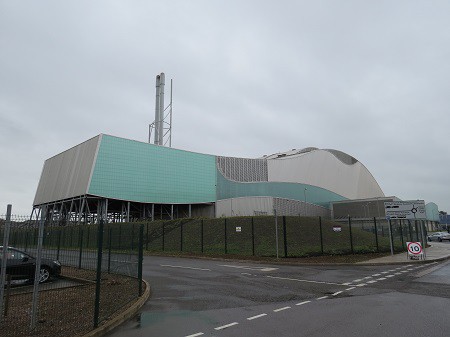
In a written statement published today (24 March), Lesley Griffiths, minister for environment, energy and rural affairs, outlined further details of the Welsh strategy heralded earlier this month and called: ‘Beyond Recycling – a strategy to make the circular economy a reality’.
The plan outlines efforts for Wales to become “the best country in the world” at recycling (see letsrecycle.com story), as well as plans for the moratorium.
Commitments
On the moratorium, Ms Griffiths said: “As well as keeping to our long term commitments, this moratorium also recognises the views we received from citizens and stakeholders during the consultation on Beyond Recycling and the advice from the UK Committee on Climate Change on the pathway needed for Wales to decarbonise.”
“This moratorium also recognises the views we received from citizens and stakeholders”
She continued: “This will be accompanied by the publishing of an updated strategic assessment which shows, apart from a modest potential need for smaller scale energy from waste capacity for non-recyclable waste and to properly dispose of dangerous wastes such as clinical waste, the success of our recycling and the decrease in waste generated in Wales means no further large scale energy from waste plants are required.”
The minister added that “evidence from our recycling journey as a nation”, as well as the accompanying reduction in waste, means the government has reached the point where “we will not need any new large scale energy from waste infrastructure to deal with the residual waste generated in Wales”.
Heat

The statement added that small scale EfW plants of less than 10MW will also only be allowable if the applicant can demonstrate the need for such a facility for the non-recyclable wastes produced in the region.
Any new small scale facilities must also supply heat, and where feasible, be carbon capture and storage enabled or ready.
This will therefore mean a small scale plant would not be allowable if waste is to be imported from outside of the proposed region (unless in close proximity to a region), in order to also avoid locking in transport emissions and associated pollution.
Ms Griffiths commented: “Taking action on the generation of energy from waste is one important part of a wider suite of work we are taking forward. This includes action to produce less waste by tackling those items which end up as non-recycled waste.”
Strategy
The statement said the next major milestone will be the publication of its “upcoming joint consultation on introducing Extended Producer Responsibility for packaging waste and on the preferred design for a Deposit Return Scheme for drink containers”.
The statement comes the same day as this is due to be released.
Ms Griffiths added: “The work and engagement on Extended Producer Responsibility and a Deposit Return Scheme take forward our commitment in Beyond Recycling to keep resources in use and avoid waste. They will place a clear emphasis on re-use and recycling and incentivise improvements in the design of packaging and better inform consumers on what can and cannot be recycled.”
Related links
Written Statement: Taking action to make the circular economy a reality











Subscribe for free